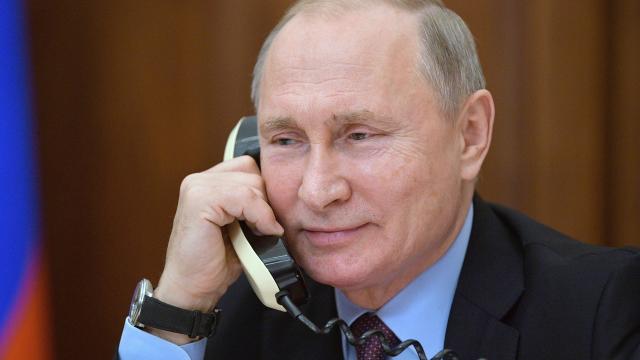Facebook has deleted hundreds of pages linked to the Kremlin-backed propaganda network known as Sputnik. The pages, allegedly operated by Sputnik employees, were made to look as though they were coming from outside of Russia. The Facebook pages helped spread propaganda about NATO and European politics, among many other topics.
The announcement by Facebook came last night and according to the company the owners of the pages “primarily represented themselves as independent news” distributors.
In fact, the pages were operated by employees of Sputnik, a propaganda agency of the Kremlin very similar to Russia’s RT. And just like RT, Sputnik is focused on reaching a non-Russian audience, whether that’s people in the United States or citizens of European countries that just so happen to have elections coming up this year.
Some of the 364 Facebook pages were discovered by independent researchers who alerted the company, but others were taken down after a tip from US law enforcement. According to Facebook, roughly 790,000 accounts followed these astroturfed pages. The tech company says that it has shared information from its own investigation with both American law enforcement members and Congress.
“We are constantly working to detect and stop this type of activity because we don’t want our services to be used to manipulate people,” Facebook’s head of cyber security policy, Nathaniel Gleicher, said in a statement.
“We’re taking down these Pages and accounts based on their behaviour, not the content they post,” Gleicher continued. “In these cases, the people behind this activity coordinated with one another and used fake accounts to misrepresent themselves, and that was the basis for our action.”
The propaganda pages ran ads, according to Facebook, spending roughly $US135,000 ($188,584) with the tech company, paid for in euros, rubles and American dollars. The first ad reportedly started in October of 2013 and these accounts were even running ads as recently as this month.
According to Facebook, many of the pages showed a keen interest in the politicians of countries such as Romania, Latvia, Estonia, Lithuania, Armenia, Azerbaijan, Georgia, Tajikistan, Uzbekistan, Kazakhstan, Moldova and Kyrgyzstan. Some of those countries have elections coming up his year.
Russia famously sought to disrupt the American 2016 presidential election in favour of Donald Trump and seems to have succeeded, though it’s admittedly tough to tell how much of an impact Russia’s propaganda actually had on the final outcome of the election. The only thing we know for sure is that President Trump has never acted against the interests of the Russian government and the FBI even opened a counterintelligence investigation into whether Trump was a Russian agent. It’s unclear whether that investigation is ongoing.
The Sputnik employees also created events on Facebook, though we don’t know how many people may have attended them, let alone whether the events even happened. According to Gleicher, roughly 190 events were created by the pages. The first was in August of 2015, and the most recent event is scheduled for this month.
Gizmodo has reached out to Facebook asking for a list of the events so that we can investigate for ourselves whether any of them may have occurred.
Facebook says that Sputnik employees have also been very active in Ukraine and created pages made to look as though they originated in Ukraine. The pages were “sharing local Ukrainian news stories on a variety of topics, such as weather, protests, NATO, and health conditions at schools”. The Sputnik effort in Ukraine also had 41 Instagram accounts that have since been deleted.
The Russian government has a keen interest in Ukraine and infamously invaded Crimea in 2014. Russia has worked to destabilise the Ukrainian government and has spent a great deal of time spreading propaganda in the country.
“We identified some technical overlap with Russia-based activity we saw prior to the US midterm elections, including behaviour that shared characteristics with previous Internet Research Agency (IRA) activity,” Facebook said.
“Our security efforts are ongoing to help us stay a step ahead and uncover this kind of abuse, particularly in light of important political moments and elections in Europe this year,” Facebook said.
“We are committed to making improvements and building stronger partnerships around the world to more effectively detect and stop this activity.
